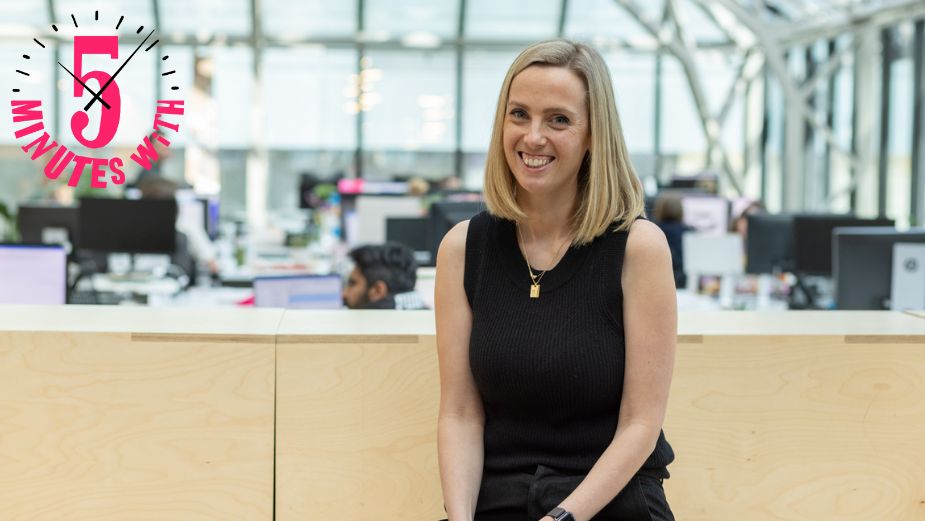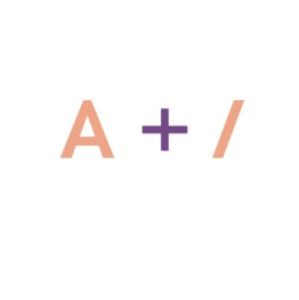
5 Minutes with... Amy Weston

Amy Weston was, two months ago, promoted to ECD at CHEP after seven years of dedicated work. In that time she’s been both an art director and a creative director, and has seen her work touch the lives of people across Australia.
When I asked her what creativity meant to her, Amy’s answer was clear and uncompromising.
“I think the best work we do is when we have the chance to touch people’s lives and actually improve the world around us.”
She gave an example.
“The brief I’m proudest of working on is the booster tag.”
CHEP’s booster tag was a simple but brilliant innovation for RAC and TAVC. The tag was an addendum to children’s clothing items, designed to inform parents when it was safe to take their child out of a booster seat.
Most parents chose to do so by the time their child was seven years old, but in reality it was a child’s height - not their age - which determines whether it’s safer for them to be in or out of a booster seat.
The tag was open sourced and, in the two years since its invention, has become commonplace throughout the country. For Amy, it’s a classic example of the best that creativity can offer.
“It’s such a simple thing, but it really changed people’s lives for the better.”
That ethos guides her still in her new role, which she combines with mentoring the next generation of female leaders in The Aunties.
For Amy, creativity is more than just a career path. It’s a way to make the world a better place.
LBB> You've been at CHEP for over seven years now. What's changed in that time, and what has stayed the same?
CHEP’s always had the energy and dumb confidence of a labrador pup at a tennis match. It’s a belief that we can make anything and that we can do it on our own. As a result, the agency constantly broadens capabilities and disciplines within its own four walls. If I was to give you the agency-creds version of the story, it’s meant bringing in the likes of media, CX, martech... but for me as a creative, it’s meant no matter what you’re working on, there’s always someone new you can grab for a chat, who will tell you if your idea is possible, if it’s relevant or if it’s actually any good.
LBB> What’s your process like when it comes to developing a campaign from a client brief?
Sometimes as an industry, we make the mistake of only writing ourselves ‘problems’ that we already know the answer to. And we congratulate ourselves when we solve them. When a client brief lands, it’s about being hard on ourselves to find a single truth and honour it with a simple but new expression. Then execute the crap out of it.
LBB> You've had a long, varied, and really successful creative career, working on campaigns like "Lose your Licence and you're Screwed" or the RACV Booster Tag. Do you have a creative ethos you like to apply?
Scary to think that I’m up to the ‘long career’ stage of my working life, it makes me feel like an outdated model. But I’m here without ever having to define a creative ethos. If I had to concoct one on the spot, it would be – to make good work you need to build trust, stay suspicious, have honest conversations and try to be a nice person.
LBB> Looking at those varied campaigns, how do you know (or do you ever know) when you've nailed it, creatively speaking?
There isn’t a single job that I’ve ever worked on that I would ever claim to have completely nailed. Any producer can attest; I always wanted to go one more round. But there are ideas that hold up over time, even if an execution may date. You know when you’ve got one very early on in the process. If in every meeting, presentation, hallway chat you have about the idea, you can consistently and efficiently explain it, you’re onto something.
LBB> Do you feel like your background as an art director gives you any particular insight or skills as an ECD?
Everything takes time. I think art directors experience that more than most. I have a huge amount of respect for people's time and feel grateful people chose to spend some of their time working with me. It means I give each idea that comes my way time that acknowledges the effort that’s got it this far. That process opens me up to new things. Without the benefit of time, we panic and default to whatever feels familiar.
LBB> Have you noticed any particular trends in client briefs or expectations, especially over the past two years?
So... many... trends. Too many trends. Some are caused by the shifting world of production and others reflect the cultural pressures that came out due to Covid and now the cost of living. I can see the struggle every strategist is currently battling to try and differentiate one client brief from another.
LBB> You've worked with The Aunties' senior mentorship programme. What does it mean to you to cultivate a new generation of female leaders in this industry, and what advice do you have for them?
Programmes like Aunties and RARE have started so many amazing initiatives, fostering inclusion, connecting individuals and getting previously silent issues widely talked about. They’ve had a huge impact, making role models visible at every level of our industry. It demonstrates there is no single right way to be a leader. Take the good bits from people you respect, do your best to reverse the not so good things you’ve experienced yourself, hold yourself accountable and trust that you can make your own way up.













